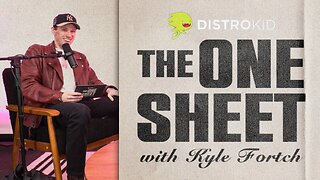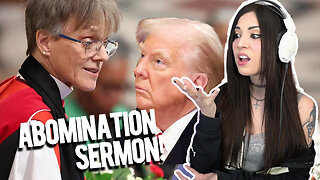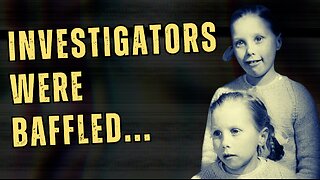Premium Only Content

Episode 1381: The Problem with Woman on the Altar
I remember well when I first saw a layperson on the altar and then the first time I saw a woman on the altar.
For many of the younger folk today they would never know a world that the woman were not promoted as leaders and men just a tool. They would not remember a time when the Priest, the deacons, the accolades, and the altar boys were all male. They wouldn’t remember a time when the church played to the whims of modern culture. But I remember those times.
Today the infection of feminism has so penetrated our culture that it is like a silent cancer. Many women do not even realize they have it. The woman want to lead and that is that and you better not get in their way. I know many traditional catholic women who pretend not to have a feminist bone in their body unless you observe them alone with the husbands.
It is a real problem and its destroyed not only our culture but our families. Its been focused on the Church and the weak men leading this church will use a synod to make it happen.
From the traditional Catholic perspective, some individuals and groups believe that feminism has had negative effects on the Church in several ways:
Ordination of Women: Traditional Catholics generally uphold the Church's teaching that only men can be ordained as priests. Some feminists advocate for women's ordination, which is seen as a challenge to the Church's centuries-old practice and teaching.
Gender Roles and Family: Feminism's emphasis on gender equality and individualism can be seen as challenging the traditional roles of men and women within the family and society. Traditional Catholics often uphold the complementary roles of men and women, with men as providers and spiritual leaders and women as nurturers and caregivers.
Moral Teachings: Some traditional Catholics believe that certain feminist ideologies may clash with the Church's moral teachings, especially in areas related to sexuality, contraception, and abortion.
Cultural and Liturgical Changes: Some critics argue that feminist ideologies have influenced changes in liturgical practices, language, and symbols, attempting to make them more gender-inclusive or non-patriarchal. Traditionalists may perceive such changes as undermining the Church's historical and sacred traditions.
Some areas where feminist ideologies have been perceived to influence certain changes include:
Inclusive Language: Feminist perspectives have advocated for more gender-inclusive language in liturgical texts and prayers, seeking to use language that does not solely emphasize male imagery for God or exclusive masculine language for humanity. This includes the use of phrases like "Creator" instead of "Father" or "humankind" instead of "mankind."
Inclusive Language in Scripture Readings: Some proponents of feminist theology have pushed for more balanced and inclusive readings of biblical passages, seeking to highlight the contributions and roles of women in salvation history and other narratives.
Liturgical Roles for Women: Feminist voices have called for expanded roles for women in liturgical settings, including serving as lectors, altar servers, and extraordinary ministers of Holy Communion. This desire for greater involvement is viewed as promoting gender equality within the Church's liturgical life.
Feminist Liturgical Praxis: Some feminist theologians and practitioners have sought to create liturgical celebrations that are more sensitive to women's experiences and concerns, incorporating themes of empowerment, inclusivity, and recognition of women's contributions to the Church and society.
Reinterpretation of Symbols: Certain feminist theologians have sought to reinterpret traditional symbols within Christianity, such as Mary's role as a symbol of divine femininity, motherhood, and compassion, rather than solely as a model of obedience and submission.
Reevaluation of Female Saints: Feminist perspectives have encouraged a reevaluation of female saints and their contributions, emphasizing their agency and leadership rather than merely their passive virtue.
The extent of feminist influence on liturgical practices, language, and symbols can vary significantly between different regions, local communities, and individual parishes. The relationship between feminism and the Catholic Church remains complex, and interpretations of feminist impact on liturgy and theology continue to be topics of ongoing discussion and discernment within the Church.
Influence on Religious Orders: Some traditional Catholics have expressed concern that certain women's religious orders have adopted feminist ideologies that deviate from traditional Church teachings, leading to internal conflicts and departures from orthodoxy.
Proverbs 31:10-31 - The Virtuous Woman: This passage describes the qualities and virtues of a capable and noble wife, who is portrayed as a woman of strength, wisdom, and industriousness.
Communism used Feminism as a weapon:
Women became “useful idiots” as Vladimir Lenin would say.
Vladimir Lenin did address the topic of feminism and women's rights in his writings and speeches. He recognized the importance of women's issues and their role in the revolutionary movement. Lenin believed that true social and economic progress required the full participation and emancipation of women.
In his writings, Lenin discussed the need for gender equality, advocating for women's education, participation in the workforce, and their inclusion in public life. He saw women's liberation as an integral part of the broader struggle against all forms of oppression and exploitation.
One of Lenin's famous statements on women's rights is from his work titled "On the Emancipation of Women," published in 1919. In this text, he wrote: "The working class cannot achieve complete liberty unless the working woman is freed from her petty-bourgeois, philistine and, consequently, reactionary guardianship."
Lenin believed that women's liberation was vital not only for women themselves but also for the advancement of the socialist cause. He understood that women's active involvement was crucial for building a strong and successful socialist society.
However, it is essential to acknowledge that Lenin's views on women and feminism, like any historical figure, were situated within the context of his time and the revolutionary circumstances of early 20th-century Russia. While he advocated for certain rights and freedoms for women, the actual implementation and practice of gender equality in the Soviet Union evolved over time and faced challenges and contradictions.
As with any historical figure and ideology, interpretations of Lenin's views on feminism can vary, and his legacy on women's rights continues to be a subject of study and debate.
Luke 10:38-42 - Mary and Martha: In this story, Jesus visits the home of Mary and Martha. Mary sits at Jesus' feet, listening to his teachings, while Martha serves. Jesus commends Mary for choosing the "better" part, recognizing the value of spiritual learning and discipleship for women.
Luke 1:26-38 - The Annunciation: Mary, the mother of Jesus, plays a central role in the birth of Jesus Christ. Her submission to God's will, her faith, and her acceptance of the role God assigned to her are emphasized in this passage.
John 20:11-18 - Mary Magdalene at the Tomb: Mary Magdalene is depicted as a devoted follower of Jesus. She is the first person to witness the resurrected Christ and is entrusted with the task of announcing his resurrection to the disciples.
Acts 16:14-15 - Lydia, a Businesswoman: Lydia, a seller of purple goods, is described as a worshiper of God. She is converted by the Apostle Paul and becomes an influential figure in the early Christian community.
Romans 16:1-2 - Phoebe, a Deaconess: Phoebe is mentioned as a servant (diakonos) of the church in Cenchreae, indicating her active role and service in the Christian community.
1 Corinthians 7:10-16 - Marriage and Divorce: This passage addresses the rights and responsibilities of both husbands and wives within the context of marriage.
Ephesians 5:21-33 - Roles in Marriage: This passage discusses the mutual submission and love that should exist between husbands and wives in marriage, reflecting the concept of complementary roles.
1 Timothy 5:9-10 - Widows: This passage outlines guidelines for supporting widows in the Christian community and emphasizes their roles in charitable work.
-
 LIVE
LIVE
Game On!
11 hours agoNFL MVP Finalist announced and Patrick Mahomes got SNUBBED!
647 watching -
 1:22:03
1:22:03
The Criminal Connection Podcast
1 day ago $1.65 earnedEddie 'THE BEAST' Hall: Tanks, Fighting, Films & Not Getting Arrested with the Worlds Strongest Man!
8.49K3 -
 11:36
11:36
MrBigKid
15 hours ago $3.85 earnedGoing Thermal... AGM Rattler TS25 Thermal Imaging Scope
52.1K5 -
 1:47
1:47
Kyle Fortch
13 hours ago $3.38 earnedTHE ONE SHEET: Season 1 Trailer
38.4K1 -
 15:12
15:12
Clownfish TV
17 hours agoVideo Games WILL Drop DEI, Too. Just Wait.
11.1K6 -
 15:17
15:17
Melonie Mac
19 hours agoFemale "Pastor" Lectures Trump with Abomination Sermon
9.65K37 -
 11:56
11:56
IsaacButterfield
1 day ago $0.67 earnedYou're Racist If You Don't Marry Your Cousin
8.64K7 -
 8:11
8:11
MichaelBisping
23 hours agoBISPING Reacts: 'Sign me UP!!' Charles Oliveira CALLS OUT Max Holloway for BMF TITLE FIGHT!
26.7K1 -
 12:38
12:38
NC Dirt Hunter
1 day agoIncredible Civil War relic sticking right out of the ground! Metal Detecting an old plantation.
15.4K3 -
 44:36
44:36
TheTapeLibrary
18 hours ago $2.65 earnedThe DARK Truth About the Pollock Family Tragedy
18.2K11